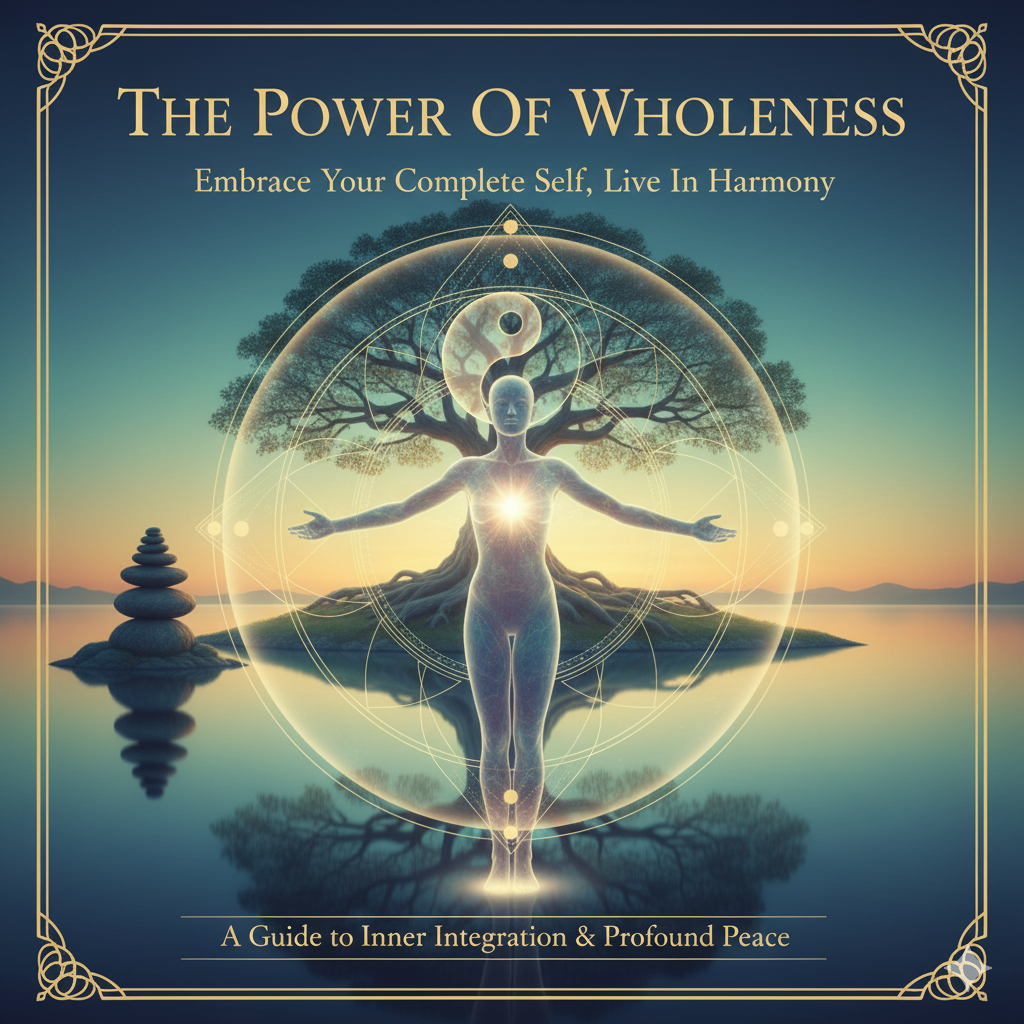
The Power Of Wholeness
The concept of "The Power of Wholeness" is a central theme in many spiritual, psychological, and self-help contexts. At its core, it describes a state of being fully complete, integrated, and harmonious.1
The "power" in wholeness comes from the transformation that occurs when all parts of the self—even the difficult or "shadow" aspects—are accepted and brought into unity.
Here are the key aspects that define the power of wholeness:
🌟 Core Definition of Wholeness
- Nothing Missing, Nothing Broken: Wholeness is the experience of inner harmony where you feel nothing is fundamentally broken, damaged, or lacking within you.2 It is often described as being complete in every part: spirit, soul, and body.3
- Integration: It is the process of weaving all the fragmented or opposing aspects of the self back together.4 This includes balancing your inner polarities:
- Light and Shadow: Accepting your strengths, virtues, flaws, fears, and vulnerabilities.5
- Mind and Body: Harmonizing mental clarity with physical well-being.
- Inner and Outer: Aligning your external actions and relationships with your true internal values.6
💪 The Power It Grants
The achieved state of wholeness grants several powerful benefits:
- Inner Peace and Resilience: When you are whole, external chaos has less power to destabilize you.7 You gain a deep, stable sense of peace and contentment, making you more resilient in the face of life's trials.8
- Authenticity and Purpose: Wholeness leads to self-realization—uncovering and embracing your authentic self.9 When your thoughts, emotions, and actions are aligned, you live with integrity and a clearer sense of purpose.
- Enhanced Manifestation: In metaphysical practices, wholeness is seen as a prerequisite for powerful manifestation. When you are unified and free from inner conflict (where one "part" wants success but another "part" fears it), you can project your intentions with greater focus and clarity.
- Deeper Connection: It deepens your connection to the sacred, the divine, or the universal source of life.10 By accepting yourself, you are better able to connect genuinely with others and feel a sense of belonging to the larger world.
- Healing from Within: Wholeness is the basis for holistic healing.11 By integrating past hurts, trauma, and limiting beliefs, you achieve a profound level of healing that is not just temporary symptom management but a fundamental restoration of your being.
🛤️ Key Practices for Wholeness
To cultivate this power, individuals often engage in:
- Mindfulness and Meditation: To cultivate present moment awareness and observe thoughts and emotions without judgment.12
- Self-Reflection/Journaling: To uncover hidden beliefs and understand emotional triggers.
- Integration Work: Techniques to reconcile opposing "subpersonalities" or aspects of the self (e.g., the part that wants success vs.13 the part that fears failure).
- Ethical Alignment: Consciously aligning daily actions with core personal and spiritual values.14
Would you like me to find some recommended books or practices related to achieving this power of wholeness?
